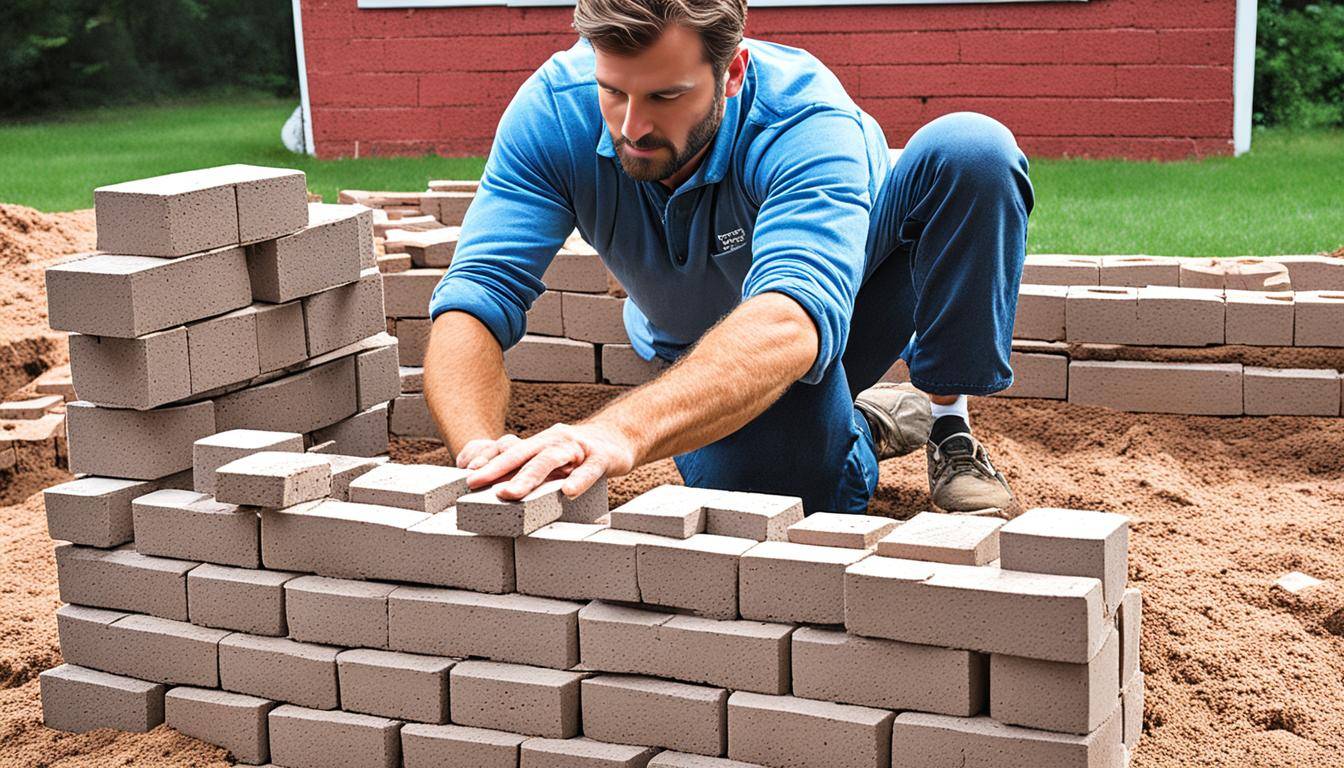“The secret of your future is hidden in your daily routine.” – Mike Murdock. This quote highlights the key to building healthy habits. It shows how our daily choices affect our well-being. Achieving wellness is more than just staying fit. It’s about balancing emotional, social, and spiritual health too.
Wellness is a personal journey, says the Substance Abuse and Mental Health Services Administration (SAMHSA). It’s about living a life full of health, happiness, and fulfillment. By focusing on building healthy habits, you can create a routine that fits your wellness goals.
Key Takeaways
- Healthy habits are essential for maintaining a healthy weight and reducing chronic disease risks.
- Starting small is crucial for sustainable habit formation; focus on one or two habits at a time.
- Tracking your progress can significantly enhance the likelihood of sticking to your habits.
- Social support is vital; engaging in healthy habits with friends boosts motivation and adherence.
- Flexibility in your routine allows for adjustments without discouragement, promoting long-term success.
Understanding Wellness
Wellness is more than just feeling good. It includes emotional health, physical health, and more. Each part is key to a balanced life. Knowing these areas helps you see where you might need to focus.
The Many Dimensions of Wellness
Wellness has eight main parts: emotional, physical, occupational, intellectual, social, environmental, financial, and spiritual. Each one adds to your life’s quality. Emotional health, for example, affects your physical health too.
When you take care of your feelings, you make better health choices. This can lower your risk of heart disease or type 2 diabetes.
The Interconnectedness of Wellness
Wellness areas are connected and affect each other. For example, money stress can make you anxious, which can show up physically. Thinking ahead and making smart choices can help you focus on the big picture.
Having a routine and support from loved ones is important. Looking into resources can help you grow. Check out personal development guides for tips on personal growth.
Creating Balance in Your Life
Finding balance in today’s fast world takes thought and effort. You must juggle work, family, and social life. What balance means to you can change as your priorities shift.
Identifying Your Personal Balance
Understanding your personal balance means knowing what you need. Look at your daily life and see what stresses you out. Everyone’s life is different, so what works for someone else might not work for you.
By focusing on what makes you happy and well, you can reduce stress. This means doing things that are right for you.
Re-balancing During Tough Times
When things get hard, it’s time to re-evaluate your commitments. What worked before might not work now. It’s important to find new ways to balance your life.
Setting boundaries with work or taking time for mindfulness can help. Remember, your balance might change, and that’s okay. It’s about adapting and living in the moment.
For more tips on living intentionally, check out this resource. It can help you take control of your life and improve your well-being.

How to Build Healthy Habits
Building healthy habits is all about starting small for lasting change. It’s easier to begin with small steps that lead to a healthier life. This approach makes the change less scary and lets you see success fast, keeping you motivated.
Starting Small for Lasting Change
Small changes can lead to big results in forming habits. It might take up to 254 days to make a new habit stick, so be patient and stay consistent. Instead of big changes, start with small ones. For example:
- Drinking an extra glass of water each day.
- Incorporating five minutes of mindfulness into your morning routine.
- Taking a short walk after lunch to boost energy levels.
Using the SMART method can help set better goals. Make sure your goals are Specific, Measurable, Achievable, Relevant, and Timely. Celebrating your small wins keeps you excited and committed, helping you make bigger changes later.
Gradual Integration of New Routines
Slowly adding new routines is key to lasting results. Try the “Habit Stack” method by adding new habits to your current ones. For example, if you already drink coffee in the morning, add a quick exercise right after. This way, you build on what you already do and make new habits easier to follow.
Having things easy to do helps make them habits. Make your environment support your new habits to stay on track. Knowing what motivates you, whether it’s positive rewards or avoiding negative triggers, can also help you stick with your habits.
Being ready for challenges is important too. Think about what might get in your way and plan how to overcome it. This helps you stay consistent and succeed in building healthy habits.
Valuing Routines and Habits
Creating routines can boost your wellness big time. By making self-defined routines, you set up a plan that fits your goals and values. This approach brings a feeling of achievement and helps you live healthier.
Healthy habits are good for your body, mind, and feelings. They help prevent long-term illnesses and make life better.
Establishing Self-Defined Routines
Start by figuring out what wellness means to you. Look for small, good changes you can make every day. Studies show that sticking to routines makes it easier to keep up with healthy habits.
Adding regular exercise is a great move. It’s good for your brain and lowers disease risk. As you make your self-defined routines, think about getting enough sleep, drinking plenty of water, and eating well.
The Role of Habits in Overall Wellness
Habits are key to lasting health gains. Being with friends and family boosts your mental health and makes you feel part of a group. Linking new habits with your daily routines helps you stick with them.
To keep these habits going, tie them to what matters to you. Activities like reading or being outdoors can also reduce stress and slow down brain aging.

About 80% of people find it hard to keep up with healthy habits. Valuing routines and knowing their value puts you on a path to better wellness and a happier life. Learn more about changing your habits here.
Habit Formation Strategies
Building lasting habits means using strategies that fit your life. These strategies help you start new behaviors. With focus and consistency, you can improve your life and well-being through mindful habit building.
Effective Techniques for Habit Building
Starting new habits needs patience and effort. Here are some key techniques to help you:
- Habit Stacking: Add a new habit to an old routine for an easy start.
- Specific Goal Setting: Set clear goals, like exercising for 20 minutes a day, for better focus.
- Cue-Based Planning: Plan when and where you’ll do a habit.
- Temptation Bundling: Do fun activities with tasks you want to do.
- Monitor Incremental Progress: Track small steps towards your goals, aiming for small improvements each time.
- Social Support: Join groups with similar goals for motivation and support.
Utilizing Habit Tracking Methods
Tracking your habits helps you stay on track for lasting change. Using good habit tracking methods boosts your progress and keeps you accountable. Here are some ways to track your habits:
| Method | Description | Advantages |
|---|---|---|
| Apps | Use apps made for tracking daily habits. | They’re easy to use and show your progress. |
| Journals | Keep a journal to record your habits and thoughts every day. | It helps you think deeply and stay engaged. |
| Charts | Make charts to see how your habits change over time. | They quickly show trends and what needs work. |
Using these methods helps you stay on track and builds accountability. Being consistent and flexible in your habits leads to lasting change. As you make these habits part of your life, you improve your health and grow personally.
Overcoming Habit Obstacles
Starting to build healthy habits can be tough. You might face challenges that slow you down. But, it’s key to keep going to reach your wellness goals. You need discipline and persistence to get past obstacles and stay on track.
Understanding common hurdles like fear of failure, not having enough time, and feeling tired helps you plan better. This way, you can stay motivated and focused.
Cultivating Discipline and Persistence
To beat habit obstacles, boost your self-confidence and be patient. Tools like the High 5 Habit by Mel Robbins can help you grow and fight doubt. When you’re tired, start with easier tasks to keep moving forward.
Give yourself time to see changes and celebrate small wins. This builds your confidence and keeps you committed to your new habits.
Common Challenges and How to Address Them
Building habits comes with its share of challenges. Fear, feeling alone, and not seeing quick results can slow you down. To overcome these, build a supportive network, like the Get Loved Up Membership, to connect with people who share your goals.
Remember, forming a habit can take 21 to 254 days. So, set realistic goals. Use effective strategies and stay focused on your wellness path. Check out the Pyramid of Success for tips on handling these challenges.
FAQ
What is the best way to start building healthy habits?
Start with small, easy changes in your daily life, like drinking more water or taking short breaks to breathe deeply. These small steps can lead to lasting habits.
How can I track my habits effectively?
Use apps or journals to keep track of your habits. This helps you stay on track and see what you need to work on.
What should I do if I face setbacks while forming new habits?
Don’t worry about setbacks. They’re normal. Stay disciplined and keep going. Try making your environment support your habits or find people who can help you stay on track.
How does financial wellness affect my overall well-being?
Money worries can make you feel stressed and anxious. It shows how important it is to balance your money, feelings, and health.
What are some mindful habit building techniques I can use?
Use mindfulness to build habits by focusing on what you want and staying in the moment. Clear goals help you focus on what’s important for your well-being.
How can my daily routine contribute to overall wellness?
Make your daily routines match your wellness goals. This can make you feel fulfilled and successful. Routines shape your habits, which can improve your health.
What lifestyle changes can I make to improve my wellness?
Add healthy eating, regular exercise, good sleep, and self-care to your life. These changes can greatly improve how you feel every day.
How can I create balance among the different dimensions of wellness?
Check in often to see what balance means to you and adjust your life to support it. Finding balance means understanding how all eight wellness areas work together.




























































